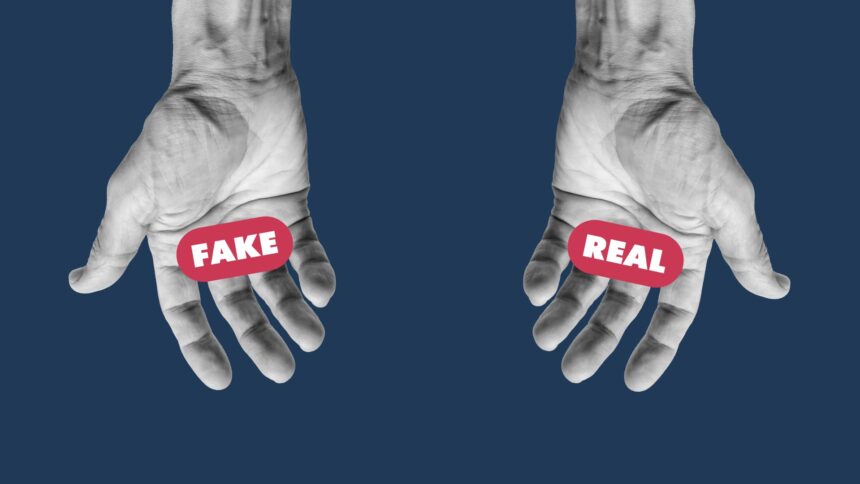About 8% of the 31.1 million assessments submitted to TripAdvisor in 2024 were fake, according to the “Transparency Report 2025” of the company.
That is more than twice the number detected in 2022, according to company reports.
But that does not mean that the number of fake reviews on the site has doubled, said Becky Foley, vice -president and head of trust and safety at TripAdvisor.
While submissions at the website increased, the polies of TripAdvisor about fake reviews also changed, she said, referring to the company’s more aggressive attitude to ‘stimulated assessments’. These occur when companies offer customers discounts or freebies in exchange for reviews, or offers incentives to employees which names are mentioned in reviews.
“The employees get their mother, best friend or cousin to submit reviews and to mention their names,” she said. “It means that companies have reviews that are valuable to our community.”
What is a fake review?
According to Tripadvisor, “any assessment submitted by Sumone that consciously biased or submits non-Firshand contents is in an attempt to manipulate the reputation of the property.”
But there is a greater reason why detections are on the rise, she said.
“Our system always gets better,” she said, with reference to the three -part process of TripAdvisor that depends on automatic detection, human assessment and feedback from the community.
Sub 7% of the submissions in 2024 was automatically responded before it was posted, according to the report. Self -Technics also marked another 5% of the submissions for Human Review.
However, TripAdvisor’s Trust and Safety Team ultimately moderated more than 4.2 million reviews, which, according to the report, was more than 13% of all submissions in 2024.
A further 244,000 reviews were disputed by members in the third phase of assessment, the report showed. Of these, the subject remained 72% on the site and 28% were removed, it said.
How to spot a fake
TripAdvisor has four categories of fake submissions: boosting, vandalism, member fraud and paid reviews, Foley said.
There is a misconception that vandalism explains the most fake reviews, Foley said, adding that boosting (54%) and fraud member (39%) have long made up the majority of those assessments.
Paid reviews (4.8%) are a smaller but “more harmful” category of fake tendon, she said.
This includes “review farms,” she said, adding that these authors of other types of online fraud are involved.
Most paid reviews come from Asia, Foley said, although only 17% of the real entries came from the continent last year.
In 2024, more than a third of all paid submissions that were detected by TripAdvisor from Indonesia and Vietnam came, while most paid reviews came from India in 2022, according to reports.
A ‘cat and mouse’ game
The eradication of fake reviews is a constant game “cat and mouse,” Foley said. But TripAdvisor gets better at detecting them every year, she said.
“We are the first to admit that we will never achieve absolute perfection,” Foley said. ‘We can’t catch [a fake] The first time, but we will eventually catch it. “
TripAdvisor uses its own technology, developed more than 25 years, to flush out fakes – a system that is increasingly less dependent on what an assessment says, and more about how it has been posted, she said. The company uses artificial intelligence and behavioral biometry to find patterns that can record deviations, such as submsie -spikes and IP address masks.
To catch paid reviers, TripAdvisor researchers have ACE Fake Review Brokers, Foley said. When a bad posts actor Cracst Review paid, “we have all the data … Hundreds of data points that are connected to it”, who uses the company to build patterns to identify other assessments submitted by the author in the past.
Viorators Aren has taken the site of the site, but their rankings are punished for a year, Foley said. Repeated offenders assume that Red Badge on their list “that says that this characteristic is trying to December,” she said.
AI -Reviews: not fake, but not set off
Most reviews written by AI are not fake, Foley said, and called that “one of the myths I like to call Buste”.
Most are written by regular travelers who use the technology to make their writing more polished, she said.
Yet the company does not allow them – at least not for now.
In 2024, TripAdvisor removed more than 200,000 reviews that suspected by AI, according to the company’s transparency report 2025.
“We will continue to follow the trends and patterns. But at the moment we just don’t want travelers to eat for TripAdvisor for a sea of equality.”
